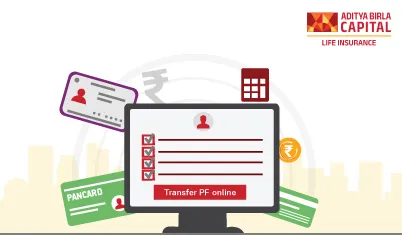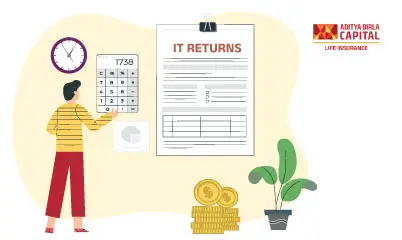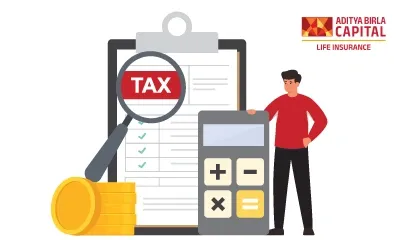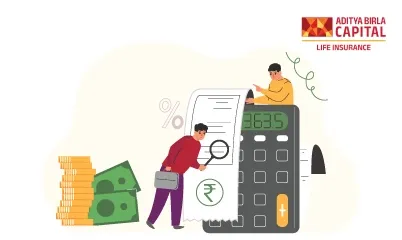We spend a sizeable portion of our savings to cover the rising cost of higher education. You may deduct educational loans under section 80E of the Income Tax Act of 1961 if you plan to take out a loan to pursue higher education in India or overseas.
The costs are higher than in India for students attending overseas institutions. The student is responsible for the costs associated with travel, housing, and required study tools such as a laptop and smartphone in addition to the substantial course price.
Section 80E was thus created to assist taxpayers with high educational costs and needed to take out loans to cover them.
What Exactly is Section 80E?
According to Section 80E of the Income Tax Act of 1961, an individual who has taken out an education loan to pay for their higher education at a foreign university for themselves, their spouse, their children, including adopted children, or for a student over whom they have legal custody may deduct the interest paid from their taxes.
In addition to the tuition fees for the intended courses, an education loan acquired for higher education abroad also covers the costs of travel, accommodation while attending the institution, study materials, and other equipment, such as a laptop, that may be required for the course.
Section 80E specifies the whole education debt and offers deductions for 80 E interest payments made to the principal.
The Purpose of the Loan
Only use the loan to pay for higher education. Higher education loans may be obtained for both domestic and international studies.
Higher education encompasses all subjects of study studied after completing the senior secondary test or its equivalent exam, including both vocational and conventional courses. However, the loan should only be used for full-time education.
Where is the Best place to get a Loan?
You must get a loan from a registered lender to receive the tax advantage of Section 80E:
- Financial institution: Any banking firm covered by the Banking Regulation Act of 1949 (including any bank or banking institution defined in Section 51) or any other financial institution recognised by the Central Government.
- Charitable institution - Any institution recognised for Section 10(23C) or 80G(2)(a)
Note: The loan is not qualified for deduction if you get it from any other organisation.
Interest on Education Loans or Section 80E Income Tax Deduction
To explain, section 80E allows for the deduction of school loans obtained on behalf of your spouse, children, adopted children, or students for whom you are the legal guardian. The need for this loan to be obtained from a financial or philanthropic organisation is also mentioned in Section 80E.
The interest paid to a relative or employer on loan taken out for higher education cannot be deducted under section 80E. Any bank that complies with the Banking Regulation Act of 1949 and can provide such a service is referred to as a financial institution.
According to Section 10's clause 23C, any authority named therein is a benevolent organisation. Any university or institution founded only for educational purposes, trusts or institutions founded for charitable or religious purposes, and institutions covered by Section 80G may all be included in this category.
Note that only people are eligible for this deduction. Hindu undivided families (HUFs) are not eligible to make such a claim. A business or organisation cannot claim such a deduction under Section 80E. Only the person who obtained the loan for this reason and is in charge of paying it back with income may claim the deduction.
Conditions for Using an Education Loan as an Income Tax Deduction
- To get the deduction, you need first to pay the EMI. The income subject to the tax must be used to pay the EMI.
- The loan must come from a recognised financial institution or non-profit organisation.
- A charity institution that the prescribed authority has authorised under paragraph (23C) of section 10 or one that is mentioned in clause (a) of sub-section (2) of section 80G is considered to be an approved charitable institution for section 80E.
- Financial institutions also include any banking companies covered by the Banking Regulation Act of 1949 (10 of 1949), including any banks or banking institutions mentioned in Section 51 of that Act, as well as any other financial institutions that the Central Government may designate in this regard by notice published in the Official Gazette.
- The borrower must take out the loan to further their or a family member's higher education. A person's spouse, children, or the student for whom they are the legal guardian.
- Any programme of study undertaken after completing the Senior Secondary Examination or a comparable test administered by a school, board, or institution is referred to as higher education. Any other entity designated to do so by the Central Government, State Government, or Local Authority, as well as any of these entities, must recognise such an education.
Tax Deduction Under Section 80E Eligibility
- Interest in education explicitly taken for higher education may be deducted under Section 80E. After passing the senior/higher secondary exams for the 12th grade or equivalent, students continue further education. Additionally, it offers postgraduate and vocational courses.
- Under Section 80E, only an individual taxpayer may claim tax deductions. Hindu Undivided Forces Families and businesses are ineligible to claim deductions under section 80E.
- Section 80E deductions are available for loans from banks or other financial organisations registered under the Banking Regulation Act of 1949.
- By clause 23C of Section 10, deductions under Section 80E are also allowed for loans from recognised charity organisations.
- A loan from friends or family is not deductible under section 80E.
- The deduction only applies to loans to pay for overseas higher education.
- Up to eight years are allowed for the tax advantage. After eight years, the tax deduction is no longer valid.
- For the taxpayer to be eligible for deductions under this clause, the student loan must be in their name.
- Only the interest portion of the student loan is eligible for section 80E deductions.
The principal portion of the student loan is not subject to Section 80E deductions.
Deduction Period
These interest-related deductions begin to accrue in the year that a taxpayer begins making loan payments. However, after the repayment process has begun, a person may qualify for Section 80 deductions for up to 8 years or until the whole amount of interest has been paid (whichever is earlier).
Therefore, tax deductions are only available for five years if a taxpayer repays the loan amount. For instance, suppose Rohan received a loan for further study and began making payments on it in 2022. The interest portion of the EMIs from the same year will be eligible for tax deductions.
He may deduct the interest payments from his income for the whole payback period if he pays off the debt by 2030 or 8 years. However, he will only be entitled to deduct expenses for five years, not eight years, if he pays off the loan by 2027.
Amount of the Section 80E Tax Deduction
As was already indicated, the rules of Section 80E of the Income Tax Act of 1961 only permit persons to deduct the interest portion of loans taken out for higher education. Therefore, taxpayers cannot claim any tax exemptions on the central portion of the loan amount.
These deductions, however, are only available during the years that the loan's interest is paid. Furthermore, the amount of the deduction has no upper limit.
Tax advantages related to Section 80E
According to the Income Tax Act requirements, a person who has taken out a loan for higher education may be eligible for several tax advantages. As there is no cap on the deductions, even if taxpayers have already taken the maximum number of deductions (Rs. 1,50,000) allowed by Section 80C, they are still entitled to take deductions under Section 80E.
Advantages of Early Education Loan Repayment
- Many people would want to pay off their student loans throughout the 8-year payback cycle to benefit from the discounts.
- Instead of using their extra money to pay off their debt, these people decide to invest it instead.
- To get the most tax advantages, they often choose to extend the payback term for up to 8 years.
- This approach is perfect for those who believe they can invest their spare cash instead of spending it to pay off EMIs to maximise their income.
- However, by paying off the loan amount as soon as feasible, a person may be relieved of the EMI payment pressure and prevent becoming caught in a debt cycle.
- A person's credit score is positively impacted by having a respectable track record of repaying debt. This makes it easier for them to get financial aid from lenders in the future.
- Everyone has easy access to student loans, enabling more people to seek higher education.
- Additionally, they are eligible to take advantage of tax incentives on student loan repayment according to Section 80 of the Income Tax Act.
- It is crucial to choose whether to shorten the payback time or try to pay off the debt as soon as feasible.
Calculating Section 80E Deductions
Let's look at the following example to understand better how Section 80E tax advantages are calculated. You earn Rs. 6 lakhs in gross revenue each year. You have contributed Rs. 1 lakh toward your student loan's interest.
Under Section 80E, the amount you pay toward interest on student loans will be subtracted from your gross income. Your taxable income will now be Rs. 50,000. (Rs 6 lakh- Rs 1 lakh).
Who may file a Section 80E tax benefit claim?
You might deduct this expense if you borrowed money for education for yourself, your spouse, your children, or anybody else over whom you have legal custody. Your parents may deduct the interest portion of the EMI payments they make if you split the payment obligation with them. If both parties meet the requirements, you are eligible to receive benefits for the remaining interest component of the EMI.
Claiming the 80E Tax Deduction
Only the interest paid on loans acquired for higher education is deducted under Section 80E. There is no upper limit to this amount, and you may deduct all of your interest payments from your taxes but not the principal amount. (Deduction under Section 80E may be claimed regardless of the loan amount, which may be between INR 1 lac and INR 20 lacs or even more.)
Only if the education loan was accepted for higher education is it eligible for the deduction under section 80E. Higher education is a continuing study after passing the Senior Secondary Exam (SSE). It comprises both regular and vocational courses in India or overseas. Therefore, Section 80E covers loans for graduate-level coursework in medicine, management, engineering, applied science, etc.
You may begin claiming the deduction under section 80E in the year that you begin making interest payments on a loan for higher education. You might deduct the interest paid on this loan if you began paying it off the same year you borrowed it. The maximum time frame for claiming a deduction is up to 8 years, beginning in the year that you begin repaying the loan's interest or until the loan's interest is paid in full, whichever is shorter.
Required Documentation to Make a Deduction Claim
While submitting your ITR, you may claim tax deductions under Section 80E of the Income Tax Act. You do not need to provide supporting documentation to qualify for this deduction. You may need to retain a few papers on hand in case the IT Department requests them for inspection.
These records consist of the following:
- Documentation approving the student loan
- Statements of repayment from the organisation that granted the loan (the repayment statement should provide a distinct bifurcation of principal and interest amount of the EMI for a specific financial year.)










